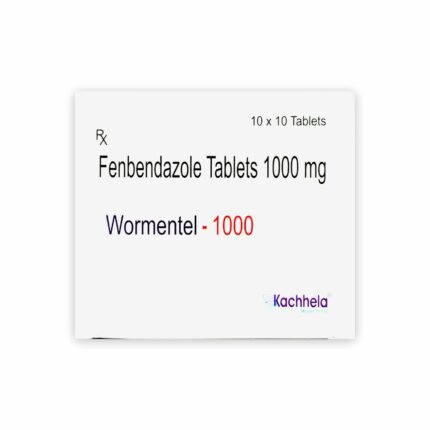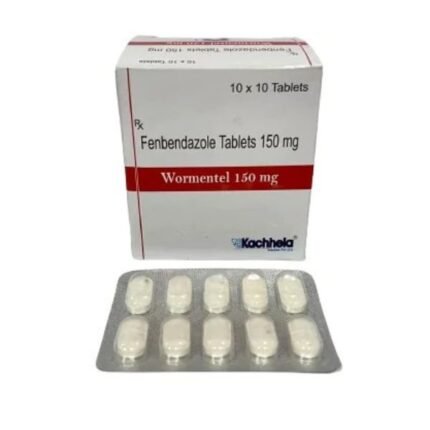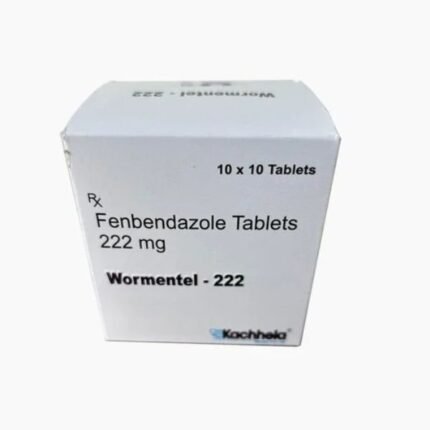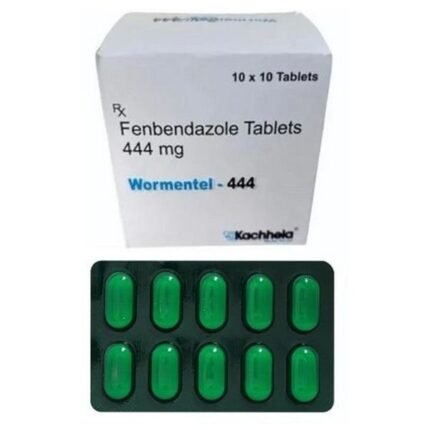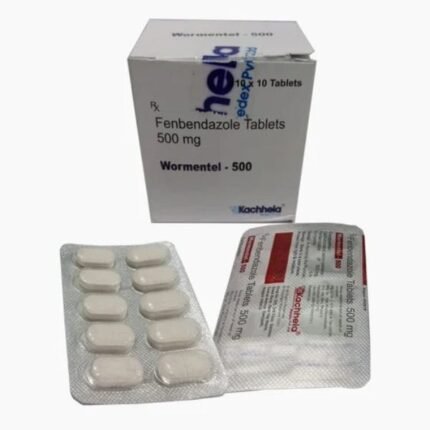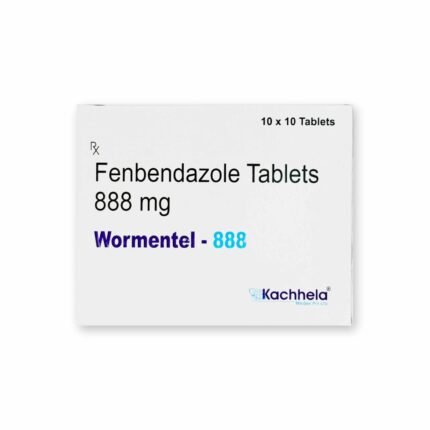Fenbendazole: A Broad-Spectrum Antiparasitic with Surprising Potential
Fenbendazole is a powerful antiparasitic medication originally developed for animals but gaining attention for its potential off-label uses in humans. Known for its ability to eliminate a wide variety of parasitic worms, it has recently sparked interest for its possible anticancer properties.
This comprehensive guide explores what Fenbendazole is, how it works, its primary uses, dosage, safety profile, and why it’s generating such a buzz online.
Fenbendazole 150 Mg Tablets
Price range: $60.00 through $340.00Fenbendazole 222 Mg Tablets
Price range: $65.00 through $320.00What Is Fenbendazole?
Fenbendazole belongs to the benzimidazole class of medications and works by disrupting the energy metabolism of parasites, ultimately killing them. It’s widely used in veterinary medicine to treat gastrointestinal parasites in dogs, cats, horses, and livestock.
🔬 Mechanism of Action
Fenbendazole blocks the formation of microtubules in parasite cells, preventing them from absorbing nutrients and leading to their death.
Key Uses of Fenbendazole
| Use Case | Details |
|---|---|
| Deworming in Animals | Effective against roundworms, hookworms, whipworms, and tapeworms |
| Potential Anticancer Therapy | Experimental use in humans as a repurposed drug for some cancers |
| Off-label Human Use | Being studied for possible action against parasites and cancer cells |
Common Parasites Treated with Fenbendazole
-
Roundworms (Ascarids)
-
Hookworms
-
Whipworms
-
Tapeworms (Taenia spp.)
-
Strongyloides
-
Giardia (with limited efficacy)
Fenbendazole for Cancer: What’s the Hype?
Fenbendazole has attracted attention in online communities and anecdotal reports for its potential anticancer properties, especially after being mentioned in connection with cancer survivor stories.
⚠️ Important Note:
While promising in preclinical studies, Fenbendazole is NOT an FDA-approved cancer treatment. Human use should always be under medical supervision.
Hypothesized Anticancer Mechanisms
-
Disruption of microtubule formation (like some chemotherapy drugs)
-
Inhibition of glucose uptake in cancer cells
-
Enhancement of immune response
Available Forms of Fenbendazole
| Form | Strength | Use |
|---|---|---|
| Tablet (e.g. 500 mg) | 150 mg, 500 mg | For animal deworming; used in off-label protocols |
| Powder | 222 mg/g | Common in livestock and dogs |
| Oral suspension | 100 mg/ml | Easy dosing for small pets |
Human Usage Protocols (Unofficial / Off-label)
Some off-label users follow the “Joe Tippens Protocol”, which includes:
-
Fenbendazole (e.g., 222 mg/day, 3 days on, 4 days off)
-
Curcumin supplements
-
CBD oil
-
Vitamin E or bioavailable tocotrienols
⚠️ DISCLAIMER: This protocol is not medically approved and should not replace conventional cancer treatment. Consult a healthcare provider before any use.
Fenbendazole Dosage in Animals
| Animal | Dosage |
|---|---|
| Dogs | 50 mg/kg once daily for 3–5 days |
| Cats | Off-label use, typically lower doses |
| Horses | 5 mg/kg orally for one dose |
| Livestock | Varies by weight and parasite burden |
Safety and Side Effects
✅ Generally well-tolerated in animals and research models
Possible Side Effects (in animals and off-label human use):
-
Mild diarrhea
-
Nausea or upset stomach
-
Elevated liver enzymes (rare)
-
Hypersensitivity reactions (very rare)
Precautions
-
Do not use in pregnant animals unless directed
-
Monitor liver function in prolonged human use
-
Store in a cool, dry place, away from children and pets
-
Always consult a veterinarian or physician before use
Buy Fenbendazole Online
We offer pharmaceutical-grade Fenbendazole in various dosages suitable for animal deworming and research use.
FAQs About Fenbendazole
Is Fenbendazole safe for humans?
While primarily approved for animal use, some studies and anecdotal evidence suggest low toxicity in humans, but medical supervision is essential.
Can Fenbendazole cure cancer?
No clinical evidence currently supports this. Some preclinical studies are encouraging, but more research is needed.
How long does Fenbendazole take to work?
In animals, worms usually begin dying within 24–72 hours. For off-label uses, effects vary and are not guaranteed.
Can I give Fenbendazole to my pet without a vet?
It's best to consult a vet for proper diagnosis and dosage to avoid underdosing or resistance.
Conclusion
Fenbendazole is a powerful, well-established antiparasitic with growing interest in its off-label potential, especially in cancer research. Whether you're treating a pet or researching alternative health paths, it's essential to use this compound responsibly and under guidance.
Ready to order? Explore our Fenbendazole range now and safeguard health—responsibly and effectively.


